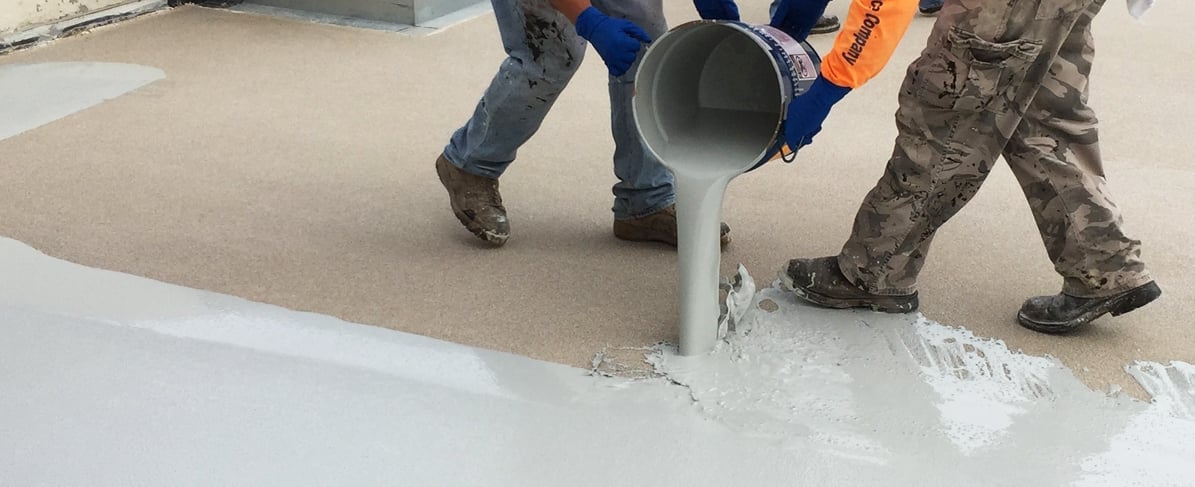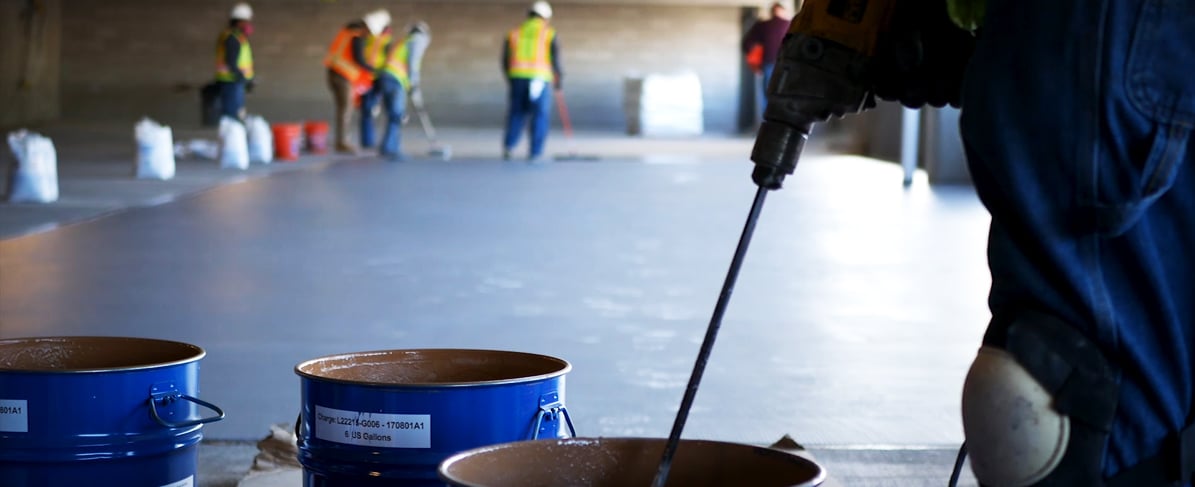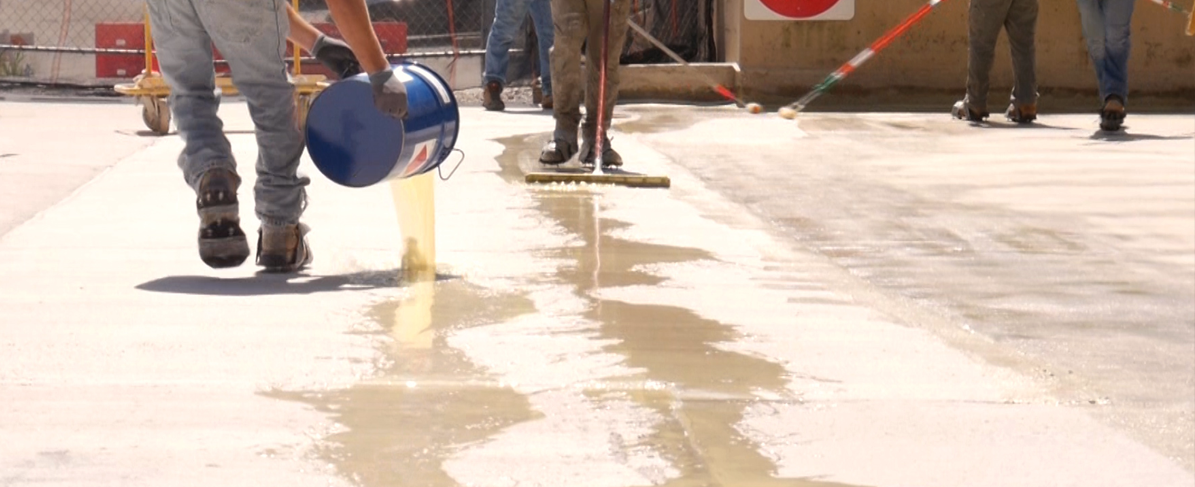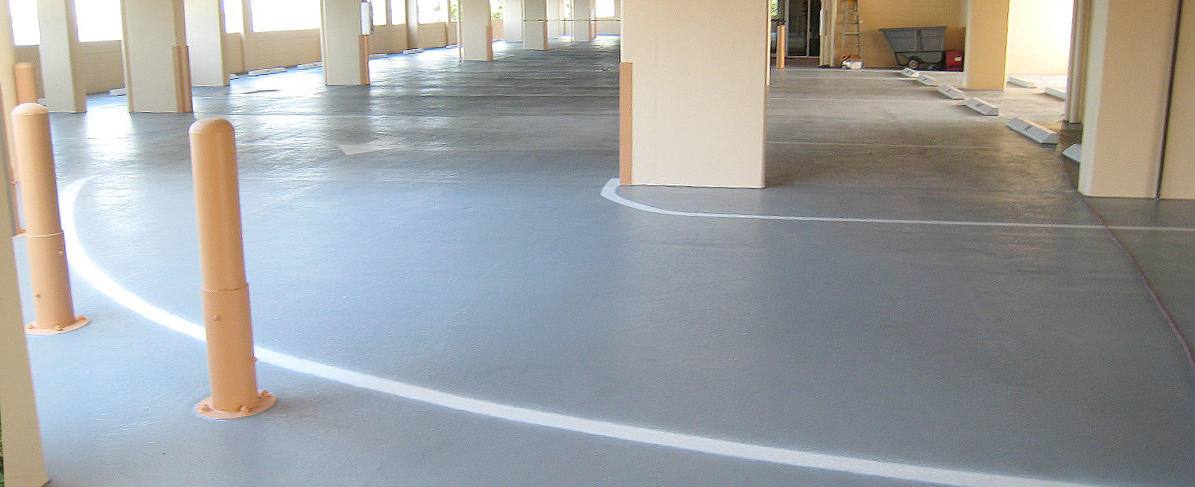When you need to protect concrete decks, foundations and other surfaces from water infiltration, abrasion and chemical damage, a range of coatings and waterproofing technologies can be utilized, but with varied characteristics and long-term success.
Polymethyl methacrylate (PMMA) and polyurethane methacrylate (PUMA) technology systems are gaining attention in this space due to their ultra-fast cure times, even in extreme temperatures, and lasting durability.
Read on to learn more about PMMA/PUMA technology so you can determine whether it might be the right coating solution for your next project.
Elongation under extreme conditions
PMMA and PUMA coatings are touted for their extreme elongation and flexibility. However, in conditions where a high degree of movement is anticipated, a PUMA system will always outperform a PMMA.
PUMA technology coatings can pass ASTM C1305, Standard Test Method for Crack Bridging Ability of Liquid-applied Waterproofing Membranes, with elongation of up to 400% at 21℃ (70℉) and closer to 300 percent at colder temperatures.
Speeding the construction cycle
Among the top reasons to select a PMMA/PUMA system is the fast cure. Though a multicoat system, the layers need only 45 minutes to an hour for cure between coats. This minimizes disruption and closure times, so building owners and property managers can quickly repair and reopen areas like parking garages, often the same day.
Cold weather tolerance is another key feature of PMMA/PUMA-based coatings—which can be applied in temperatures as low as –18 ℃ (0 ℉) so your project can make progress throughout the winter months, unlike typical urethanes.
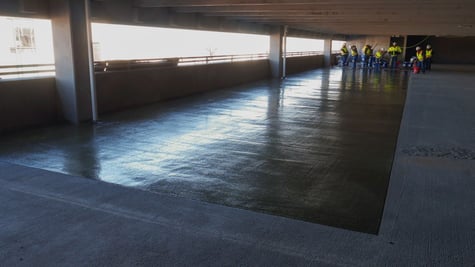
Versatility in construction
PMMA/PUMA coating systems are ideal for use in pedestrian, under-tile, and vehicular traffic-bearing applications, but because they can handle extreme wear and tear, they’re well-suited for heavy-duty applications such as parking garages, bridges, loading docks, and chemical facilities.
PMMA/PUMA coatings are also frequently used on roofs, balconies, terraces, expansion joints, plaza decks, and planters. And because they can be fully immersed in water, they can be used in pools and fountains installed over occupied space.
As a cold-applied waterproofing system, the below-grade applications are horizontal split slab and asphalt overlay. A PUMA system can also offer advantages as a flashing for use with hot rubberized asphalt waterproofing.
Durability
PMMA/PUMA systems are durable and have tenacious adhesion to most substrates. Some systems have recorded values as high as 1730 kPa (251 psi) when tested on concrete, according to ASTM D7234, Standard Test Method for Pull-off Adhesion Strength of Coatings on Concrete Using Portable Pull-off Adhesion Testers.
Both technologies are more chemical resistant than other waterproofing membranes and do not deteriorate when exposed to petroleum products, grease, animal fat, and similar materials.
These benefits translate to a reduction in maintenance and repairs down the road, plus longer warranty terms, with some manufacturers offering more than 20 years for certain applications, while standard urethanes are typically warranted at 5 to 10 years.
For those concerned with aesthetics, strength does not preclude beauty with PMMA/PUMA systems. They can be customized by adding any color to a tint-able base, and quartz or color flakes can be added under a clear topcoat for a decorative look.
Conclusion
The qualities inherent in PMMA and PUMA chemistries make them ideal for projects with tight timeframes and stringent performance requirements. Compared to standard urethane systems, they are more versatile, have extreme durability, and speed the overall project timeline due to fast cure times and cold-resistance. PUMA systems also offer superior elongation.
The next time you require a flexible waterproofing material that can withstand the elements and significant wear and tear, consider a PMMA or PUMA system for long-term cost savings and a result that can handle the test of time.
Contact your manufacturer for more information on the installation of PMMA/PUMA technology systems and contractor training opportunities.
